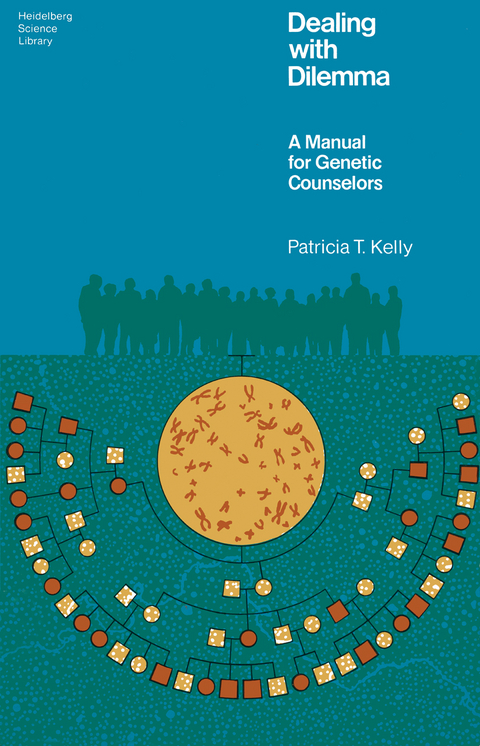
Dealing with Dilemma
Springer-Verlag New York Inc.
978-0-387-90237-1 (ISBN)
1 Introduction.- 2 Overview of the Genetic Counseling Process.- Preparation for First Visit.- Intake Visit.- Diagnostic Visit.- Follow-up Visits.- Follow-up Letter.- 3 Intake Visit.- Providing the Family with Information about Genetic Counseling Procedures and Personnel.- Exploring the Medical and Genetic Aspects of the Disease.- Exploring the Social Aspects and Impact of the Disease.- Preparing the Family for the Diagnostic Stage—Factually.- Preparing the Family for the Diagnostic Stage—Emotionally.- 4 Diagnostic Visit.- The Setting.- Timing.- Tact.- Concern for the Client in the Organization of Routines.- Modes of Inheritance and Chromosomal Disorders.- Chromosomal Disorders.- Dominant Disorders.- Recessive Disorders.- X-linked Disorders.- Polygenic Disorders.- Diagnosis Uncertain.- Probability and Statistics.- 5 Follow-up Visits.- Areas Covered in Follow-up Visits.- The Main Purposes of Follow-up Visits.- Transcript of a Follow-up Visit.- 6 Emotional and Social Reactions to Genetic Disease.- Stigma.- Chronic sorrow.- Anger.- Guilt.- Poor Self-image.- Blame.- Embarrassment.- Feelings of Selfishness.- Fear of Genetic Counseling.- Denial.- Coping.- 7 Genetic Counseling Techniques.- Considerations Before the First Session.- Opening the Session.- The Body of the Interview.- Closing the Interview.- Specific Approaches to Counseling.- 8 Sociological Aspects of Genetic Counseling.- Reactions of Patients or Clients.- Doctor-Patient Communication.- Medicine’s Changing Emphasis.- 9 Questions Genetic Counselors Ask.- Question 1: How can I tell what people really want from genetic counseling?.- Question 2: Some people are very uncommunicative. How can I encourage them to talk?.- Question 3: How can I keep one member of a family from monopolizing the conversation?.- Question4: How can I learn more about the people I am counseling if people act as if I am prying?.- Question 5: What if I ask a question and the individual does not answer it, but talks about something else?.- Question 6: Once people start talking about their feelings and emotions, how can I get them to stop?.- Question 7: What can I do when someone cries?.- Question 8: What can I do when people get angry at me?.- Question 9: What can I do when family members get angry at each other?.- Question 10: What can I do when spouses disagree?.- Question 11: How can I handle my own feelings of insecurity as I counsel?.- Question 12: If I feel the family needs more counseling help than I can give, how do I refer them to a mental health expert?.- Question 13: What can I say when people ask what I would do in a given situation?.- Question 14: How can silence be used?.- Question 15: Sometimes people who seek genetic counseling act as if they were at a party. What can I do?.- Question 16: Is it necessary for both members of a couple to be present?.- Appendix A: Intake and Follow-up Interview Schedules.- Intake Interview.- Follow-up Interview.- Appendix B: Glossary of Genetic Diseases.
| Reihe/Serie | Heidelberg Science Library |
|---|---|
| Zusatzinfo | XIV, 144 p. |
| Verlagsort | New York, NY |
| Sprache | englisch |
| Maße | 155 x 235 mm |
| Themenwelt | Medizin / Pharmazie ► Allgemeines / Lexika |
| Medizin / Pharmazie ► Medizinische Fachgebiete | |
| Studium ► 2. Studienabschnitt (Klinik) ► Humangenetik | |
| ISBN-10 | 0-387-90237-6 / 0387902376 |
| ISBN-13 | 978-0-387-90237-1 / 9780387902371 |
| Zustand | Neuware |
| Haben Sie eine Frage zum Produkt? |
aus dem Bereich


